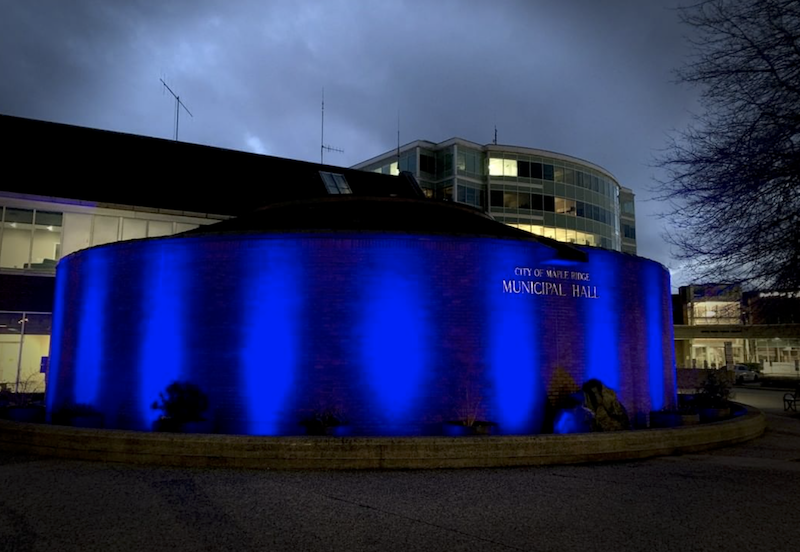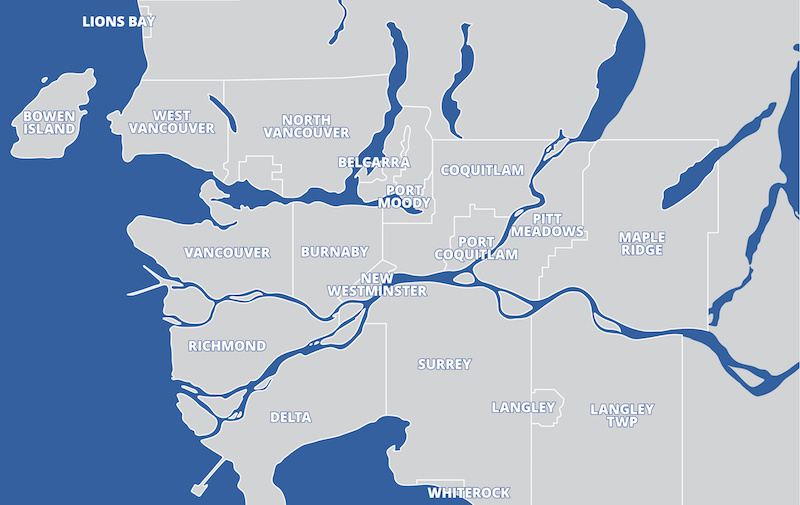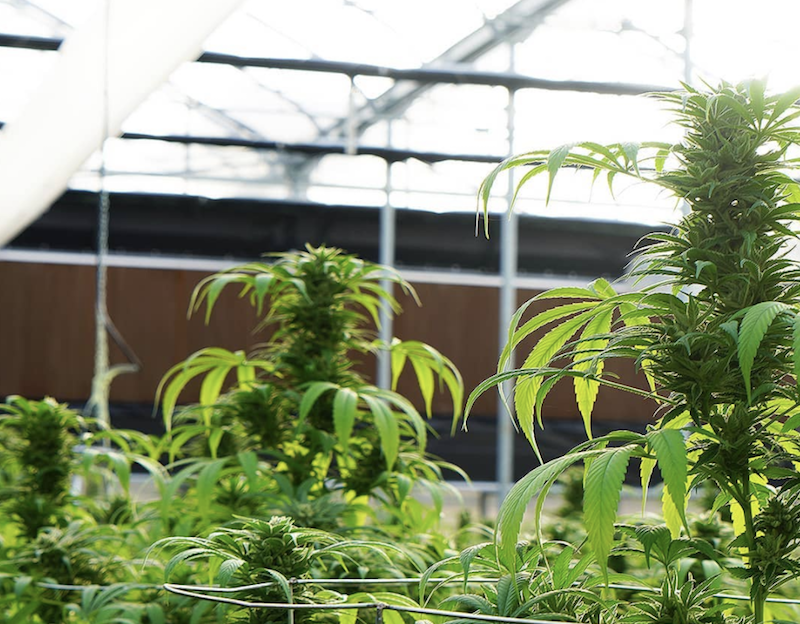Features
A city that won’t work with cannabis growers
Published on December 4, 2020 by David Brown

Prospective cannabis growers in Maple Ridge, BC, say the city makes it nearly impossible to take part in the legal cannabis industry.
While the city has been more receptive to cannabis retailers than other parts of the Lower Mainland, barriers to getting a municipal licence to grow cannabis prevent them from the opportunity to be legal, regulated businesses.
Robert Boileau has been trying to grow cannabis legally in a small building on his 16 acres within the Agricultural Land Reserve in Maple Ridge, but says city council has continued to refuse to grant him a variance that would allow him to move forward with his plan.
Citing community concerns such as odour, light pollution, and impacts on the local water table, the city originally denied Boileau’s variance application on Sept. 10, 2019. Then in November of this year, they rejected his subsequent argument that one of the city’s setback rules was inconsistent with the intent of the Agricultural Land Commission (ALC) regulations.
• RELATED: Strict regulations stifle a green cannabis industry
Boileau sought a variance from a Maple Ridge bylaw that establishes setbacks from property lines for commercial cannabis cultivation facilities. Boileau’s existing building is 31 metres from one side of his property, but the city requires a 60-metre setback from roadways.
Boileau’s building is too close to an undeveloped road allowance, which is fully treed and on which a road will not be constructed any time in the near future.
Boileau contends council’s refusal to grant a setback is in contravention of the intention of the commission’s regulations.
“I’m on ALR land,” says Boileau. “The province has told me this must be used for farming. Farming requires water. And further to that, water use is regulated by the province, not the municipality. You can’t say your land is zoned to farm, and then turn around and say ‘but you can’t use water.’”
Although Agricultural Land Commission rules revised in 2019 say that cannabis is a farming use appropriate for the ALR, in order to preserve farmland from new construction it only allows this activity outdoors or within a structure that was built prior to 2018 for the purpose of farming. New construction for other non-cannabis-related agricultural activities like tomatoes or cut flowers is allowed, though.
ALC rules also allow municipalities to establish certain limitations on those allowed activities, such as the distances established by Maple Ridge. Boileau’s building was constructed prior to 2018, not for growing plants but as a small workshop and is thus subject to the city’s rules. If he had been growing something in the building already, the city’s bylaws would not apply.
Boileau also says the city has confirmed that he could construct a new building on his property for indoor cannabis cultivation that complies with the 60-metre setback.
“Requiring that a new building be constructed, rather than permitting the use of an existing building because of proximity to a road that does not exist and likely never will, contravenes the intent of the ALC in preserving farmland,” says Boileau.
One of his frustrations is that although he is currently allowed to grow cannabis outdoors on his land—an activity authorized by the ALC and outside of the city’s purview—he says he prefers to use his existing 5,000-square-foot building to better mitigate against the very concerns the city has with issues like light and odour, and to be more considerate to the neighbourhood.

Maple Ridge is a suburb east of Vancouver. (Photo: Adobe Stock)
“It’s a very frustrating scenario,” continues Boileau. “They say ‘we don’t want high water-use, we don’t want light pollution, we don’t want odour.’ Well, I have a way to control all that (by growing indoors). And yet they’re still preventing me from doing it.”
In addition, he says, the micro cannabis cultivation licence he wants to apply for would only be for about 2,100 square feet, whereas if he grew outdoors he could grow several acres. This would use more water and have no way to control odour.
“Outdoor cannabis cultivation is not subject to municipal setbacks,” explains Boileau. “The ironic thing is that if I grow cannabis outdoors with no odour control, I could do so right up to the property line. However, the city is preventing me from doing it indoors where it would be completely out of sight and odour control measures could be employed.
“If I’m doing outdoor, certainly I’m not going to do just a 2,000-sq.-ft. patch because I’ll need the economies of scale to make that work. If I’m going outdoors, I might as well go huge. And then the city can’t have any say in it or control any of the things they say they are concerned with.”
“But let’s be honest: This is a political decision, not based on sound reasoning,” says Robert Boileau
Although he says many of his own neighbours have come around to the idea of growing cannabis, he suspects city council is ultimately listening to others in the larger community who are very vocal in their opposition to anything cannabis related. When he originally applied, he says many of those who were opposed didn’t even live in his immediate rural neighbourhood.
“I think they are inundated with emails of opposition that they just don’t want to deal with it. It’s more of a political risk for them to stick their neck out and say that maybe there’s some good reasoning behind this. So they create these barriers to just discourage anyone from doing it.”
“I haven’t had a lot of time to really evaluate my next steps,” he continues. “I’m considering going to the outdoor model, but it’s not what I want to do. Or I may get a legal counsel involved and get somebody else’s opinion about that setback. I’m just a one-person show. I don’t have unlimited funds to do this. I’m doing the best with what I can on my own.”
Maple Ridge city council did not respond to a request for comment for this article by press time. The city is home to at least two larger licensed commercial cultivators built several years ago that were originally built and licensed under federal medical cannabis regulations.
The city council has had a somewhat adversarial relationship in the past with at least one of these growers—Tantalus Labs, located a few kilometers away from Boileau’s property.

Cannabis plants grow inside Tantalus Labs’ Maple Ridge facility. (Photo: Instagram)
Dan Sutton, the CEO and Founder of Tantalus agrees with Boileau’s concerns that this opposition is being led by a small group of residents often nowhere near these facilities.
“(Maple Ridge) is an exceptionally difficult place to be a cannabis cultivator in my experience,” says Sutton. “We have had a relationship with the City of Maple Ridge since 2013, and that relationship has been fractured.”
One of the effects of this opposition, Sutton says, is it means the high number of illicit growers in the community have no path forward to being legal and regulated, which would actually help the city manage businesses that if kept illicit, are difficult to oversee.
“I think those city bureaucrats and city councillors are responding to negativity in a small subset of their most outspoken constituents,” he continues. “They’ve allowed the narrative to be run by people who are opposed, and I think the real (problem) in the City of Maple Ridge today is there are hundreds and hundreds of small illicit growers. These are small growers who might have a shot at a micro, who might want to be in the legal market and those growers are in a constituency that in my view has historically been hostile to cannabis businesses.”
Another Maple Ridge resident and local business owner who had hoped to apply for a small cannabis nursery licence says she’s already looking at other parts of BC because of the city’s roadblocks.
“I find it very disheartening,” says Sandra Colasanti, the VP of sales and business relations for Remo Brands Inc, a cannabis nutrient company running out of a warehouse in central Maple Ridge.
“I’ve lived and worked in Maple Ridge for decades and I’d really like to keep my business here. Unfortunately, the city seems to have no interest in allowing cannabis businesses in Maple Ridge. They don’t care if it’s legal or not,” says Sandra Colasanti
Colasanti says she has spent the last few years trying to find a suitable property for a small cannabis nursery in Maple Ridge, but all the land she’s found within the ALR that would suit the ALC and city bylaws is too expensive. Although she has permission from the owner of the building Remo Brands currently occupies near the centre of the city, Maple Ridge city council won’t even hear from anyone for a business licence.
“We could apply for a variance, but we’ve seen how that goes” she says, referring to Boileau. “So why do I want to fight with someone who doesn’t want this? We just want to be welcomed, do our work, pay our taxes, create some jobs, and add to the economy. Which is what we do with our nutrient company.
“We have no choice but to look for options outside of Maple Ridge. There’s other cities in the Lower Mainland that will happily approve legal cannabis businesses. It’s frustrating, but what can you do? I know when I’m not welcome.”
David Brown writes about cannabis and cannabis policy. He is the founder of StratCann.com.
Leave a comment on our Facebook page.
© Copyright 2020 Okanagan Z. | About the oz.
Report a Typo or Inaccuracy
We strive to avoid typos and inaccuracies. However, on occasion we make mistakes. We value your contributions and help in correcting them.